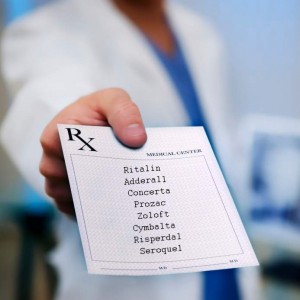The Australian – 11/26/2011
by Frank Furedi
As far as the American Academy of Pediatrics is concerned you can never drug children early enough.

It is important to realise that what drives the steady expansion of the diagnosis of ADHD among children is not the discovery of a hitherto unknown medical condition, but the cultural redefinition of some of the normal existential problems of childhood
In their recently published guidelines they recommend that children as young as four can be treated with the psycho-stimulant drug Ritalin.
These new guidelines issued by the academy at its annual conference in Boston proposed that preschool children who show symptoms of inattention and hyperactivity should be evaluated for pharmacological intervention. “Treating children at a young age is important, because when we can identify them earlier and provide appropriate treatment, we can increase their chances of succeeding in school,” was how Mark Wolraich, one of the authors of the guidelines, justified this proposal.
The targeting of preschoolers by the academy is an integral part of a disturbing tendency to advocate medical and pharmaceutical intervention as a legitimate option for the management of childhood behaviour. The campaign, which has as its premise the conviction that children’s behavioural problems represent a marker for mental illness, implicitly assumed a coercive and intrusive form. In Australia, draft guidelines being considered by the National Health and Medical Research Council threaten parents who refuse to medicate children diagnosed with ADHD with being referred to child protection authorities. The proposed guidelines assert that “as with any medical intervention” the “inability of parents to implement strategies may raise child protection issues”.
Regardless of whether these authoritarian draft guidelines will be accepted by the NHMRC, they demonstrate a dangerous tendency to transform child-rearing into a form of professionally dominated behaviour management. The guidelines should not be seen as simply the work of a handful of insensitive and zealous Ritalin promoters. Parents throughout the Anglo-American world face considerable pressure to medicate their children. In the US and Britain, numerous parents have been given an ultimatum by their children’s school either to start giving their child Ritalin or leave. Consequently the number of children diagnosed as suffering from ADHD is continually on the increase. According to the academy, one in 12 children suffer from this condition.
It is important to realise that what drives the steady expansion of the diagnosis of ADHD among children is not the discovery of a hitherto unknown medical condition, but the cultural redefinition of some of the normal existential problems of childhood. In the eyes of the supporters of early-years medicalisation, virtually every manifestation of a child’s behaviour can be diagnosed as a medical issue. That is why they argue that doctors should evaluate children from four onwards for signs such as fidgeting, excessive talking, reluctance to concentrate and abandoning homework or chores. Apparently such normal forms of misbehaviour are symptoms of ADHD. So according to these experts, ADHD is characterised by many of the traits that would, in the absence of a medical definition, be frowned on as bad behaviour: inability to concentrate, lack of application, unruliness.
Although most sensible people are likely to be appalled by the proposal to drug preschool children, it is likely that the medicalisation of childhood will continue to gain institutional support. The main reason why children’s behaviour has become a target for pharmacological intervention is because of the difficulty that adults have in exercising authority over the life of young people. Parents have always found it difficult to deal with their toddler’s defiance and with adolescent discipline. Today, however, this age-old problem has become far more difficult to manage because of the tendency to devalue adult and parental authority.
Read the rest of the article here


SHARE YOUR STORY/COMMENT